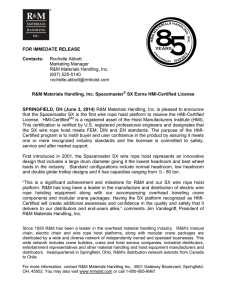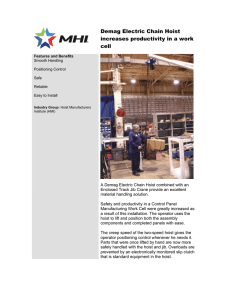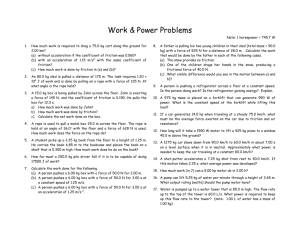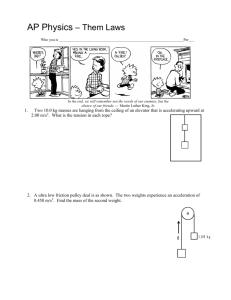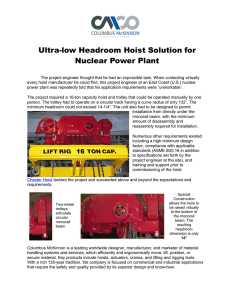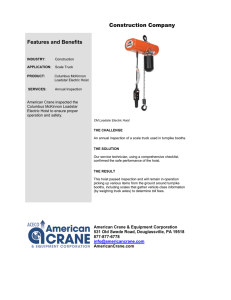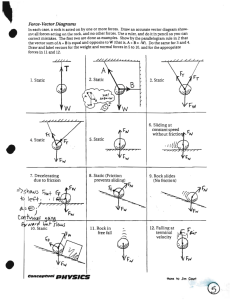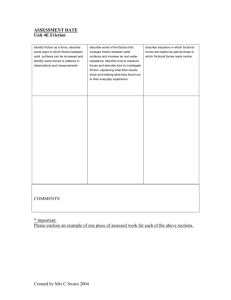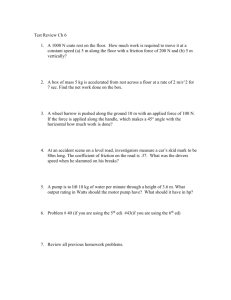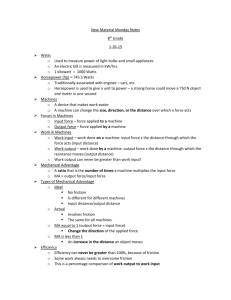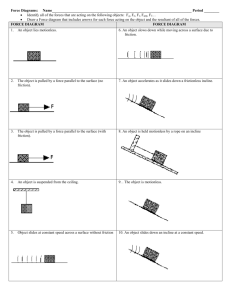M2 work and energy part 2
advertisement
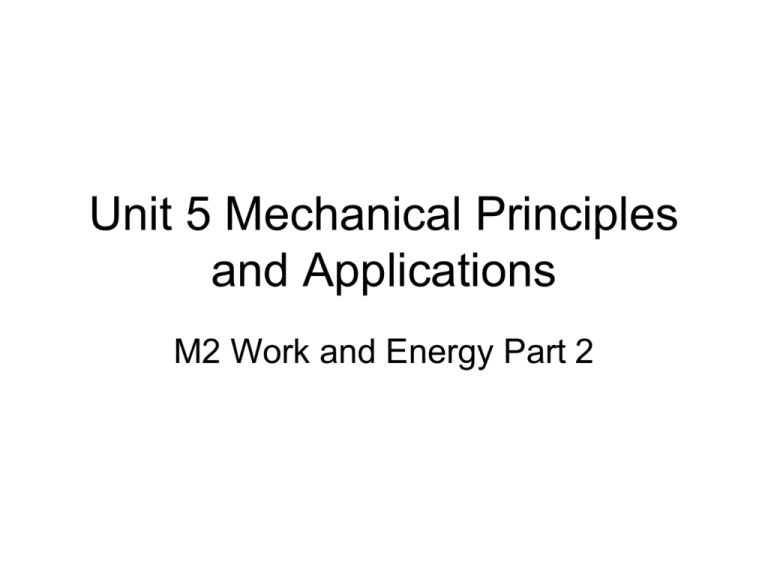
Unit 5 Mechanical Principles and Applications M2 Work and Energy Part 2 Re-cap on P4 Remember: v=u+at s=ut+1/2at2 v2=u2+2as s=1/2(u+v)t where: s=displacement, u=initial velocity, v=final velocity, a=linear acceleration. Mechanical Power Power is the rate of doing work, measured in Joules per second or Watts. P = Energy used / time taken Mechanical power is the power developed by a force. P=Fx/t P=Fv Friction Friction always causes energy to be wasted in the form of heat. It is always present in mechanical systems. When solving problems involving energy conversion, if the conversion is less than 100%, the difference is the energy wasted. Efficiency Efficiency (symbol η eta) is the ratio of the energy conversion process, so: η % = (energy out / energy in) x 100 The energy wasted is energy out – energy in. Worked example A pulley is used to raise a mass of 85 kg a distance of 12 m. The efficiency is 60%. Calculate the work done. The change in PE = mgz = 85 x 9.81 x 12 = 10kJ The work done is the energy in W = 10/60% = 10/0.6 = 16.67 kJ Question 1 5000 J of energy is used up in 20 seconds. What is the power? Question 2 A vehicle is propelled 25000 m by a force of 2000 N is 12 seconds. Calculate the work done and the power used. Question 3 A block of mass 500 kg is raised by a hoist at a constant rate of 0.15 m/s. Calculate the force in the rope and hence the power used. Question 4 A load is raised by a pulley. The force in the rope is 40 N and it moves 3 m in 11 seconds. The process is 70% efficient. Calculate the mechanical power. Question 5 A rocket flies at 120 m/s under a propulsion force of 3000 N. Calculate the power used. Question 6 A lifting jack must raise a force of 4 kN a distance of 0.3 m. Due to friction the efficiency is only 35%. Calculate the energy used to raise the load. Question 7 An electric hoist raises a mass of 60 kg at a rate of 0.2 m/s. The process is 30% efficient. Calculate the power input to the hoist.
